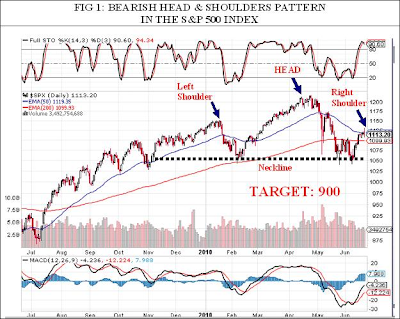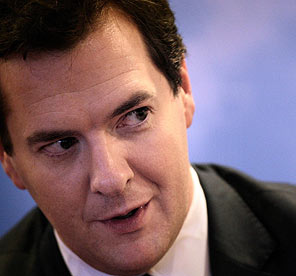ADP Report June 2010
 ADP's private employment report for June showed no signs of life today. It's a troubling read heading into Friday's Bureau of Labor Statistics data.
ADP's private employment report for June showed no signs of life today. It's a troubling read heading into Friday's Bureau of Labor Statistics data."The Greek" earned clients a 23% average annual return over five years as a stock analyst on Wall Street. While writing for Wall Street Greek and others, he presciently predicted the financial crisis and housing and banking failures of the Great Recession. Visit the front pages of Wall Street Greek now to see our current coverage of business news, global financial markets, real estate, shipping, fine art, technical analysis and global affairs.
(Tickers: NYSE: RHI, NYSE: MAN, NYSE: KFY, NYSE: MWW, NYSE: JOB, Nasdaq: JOBS, OTC: GEYH.PK, Nasdaq: CECO, NYSE: DIA, NYSE: SPY, Nasdaq: QQQQ, NYSE: DOG, NYSE: SDS, NYSE: QLD)
ADP Report June 2010
 Automatic Data Processing (ADP) today reported on the labor market for June. In summary, nonfarm private payrolls were reported increased by 13,000, which while representing the fifth consecutive monthly gain, also fell short of the average growth of 34K over that span. In fact, ADP's chart of monthly labor activity seems to imply a job market double-dip ahead. Job growth, as depicted by ADP, has decelerated over the last two months, and looks to be heading back into contraction mode. ADP's data differs significantly with the Bureau of Labor Statistics (BLS) data in that it excludes the public sector. The BLS report has shown strong job growth over recent months on the temporary hiring of census workers, but that's not evident in ADP's data.
Automatic Data Processing (ADP) today reported on the labor market for June. In summary, nonfarm private payrolls were reported increased by 13,000, which while representing the fifth consecutive monthly gain, also fell short of the average growth of 34K over that span. In fact, ADP's chart of monthly labor activity seems to imply a job market double-dip ahead. Job growth, as depicted by ADP, has decelerated over the last two months, and looks to be heading back into contraction mode. ADP's data differs significantly with the Bureau of Labor Statistics (BLS) data in that it excludes the public sector. The BLS report has shown strong job growth over recent months on the temporary hiring of census workers, but that's not evident in ADP's data.The Details
The details of ADP's report for June show large and small businesses alike inactive in hiring activity. Small businesses (less than 50 employees) shed 1,000 jobs on net, while large businesses (500 or more employees) added only 3,000 jobs in June. It was the group in between, medium-sized firms of between 50 and 499 employees, who picked up the slack in hiring 11,000 folks through June.
Goods-producing industries shed 17K jobs through the month, though the manufacturing sector continued to expand, adding 16K employees. It was instead ongoing weakness in construction that weighed on goods makers, as construction shed 35K jobs through the month. Any gains made through the First-Time Homebuyers Tax Credit, while effective, proved temporary. Natural growth is not yet prepared to take the baton from government stimulated growth, and homebuilders seem to be facing up to that reality in their labor adjustments. (Interests: NYSE: F, NYSE: TM, NYSE: HMC, NYSE: TOL, NYSE: HOV, NYSE: BZH, NYSE: DHI, NYSE: FNM, NYSE: FRE, NYSE: PNC, NYSE: GS, NYSE: MS, NYSE: JPM, NYSE: BAC, NYSE: C, NYSE: WFC)
The service sector, the key driver of American economic activity, added 30K jobs in June. While this report is seasonally adjusted, I have to wonder how much of this growth was due to hiring along America's coastline resort towns. Given the weakness of last year's consumer spending, it seems likely to me that the pick up this year toward normal consumer spending might have allowed for more hiring on the nation's boardwalks than the seasonal adjustment could make up for. Therefore, I'm not at all impressed by the still otherwise soft growth in services. (Interests: NYSE: FUN, NYSE: DIS, NYSE: CUK, NYSE: CUL, Nasdaq: PCLN, Nasdaq: EXPE, NYSE: RCL, NYSE: SIX, NYSE: OWW, Nasdaq: WWON)
Looking Ahead
When reported Friday, economists surveyed by Bloomberg are looking for unemployment to post an increase for June, to 9.8%, from the 9.7% rate reported in May. I agree that it is unlikely the rate will moderate further, as it did in May from 9.9% in April. I concur also that it is more likely the unemployment rate will increase, as economic activity previously supported by government crutch must now make its own way. This premature wish of policy makers now consumed by budget crisis could leave our economy flailing in the harsh dry wind of renewed recession.

Editor's Note: This article should interest investors in Robert Half International (NYSE: RHI), Korn Ferry (NYSE: KFY), Manpower (NYSE: MAN), Monster World Wide (NYSE: MWW), General Employment Enterprises (NYSE: JOB), Global Employment Holdings (OTC: GEYH.PK), Career Education (Nasdaq: CECO), Goldman Sachs (NYSE: GS), Morgan Stanley (NYSE: MS), Citigroup (NYSE: C), J.P. Morgan Chase (NYSE: JPM), Bank of American (NYSE: BAC), Northern Trust (Nasdaq: NTRS), Wilmington Trust (NYSE: WL) and 51job Inc. (Nasdaq: JOBS), UBS (NYSE: UBS), Credit Suisse (NYSE: CS), Deutsche Bank (NYSE: DB), PNC Financial (NYSE: PNC).
Please see our disclosures at the Wall Street Greek website and author bio pages found there. This article and website in no way offers or represents financial or investment advice. Information is provided for entertainment purposes only.

Labels: Labor Market











































